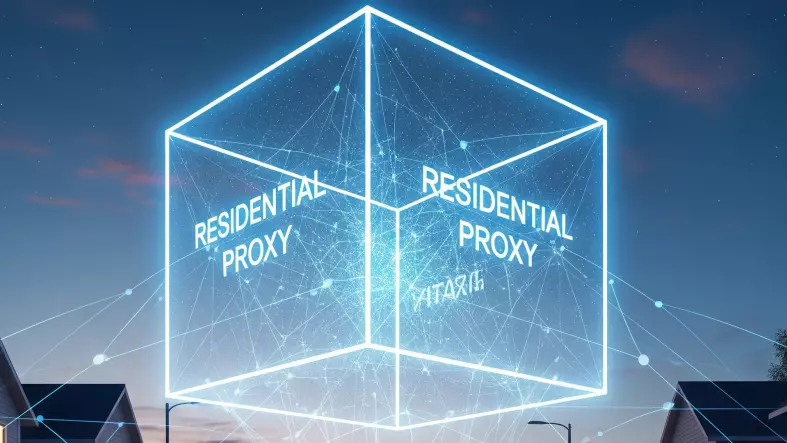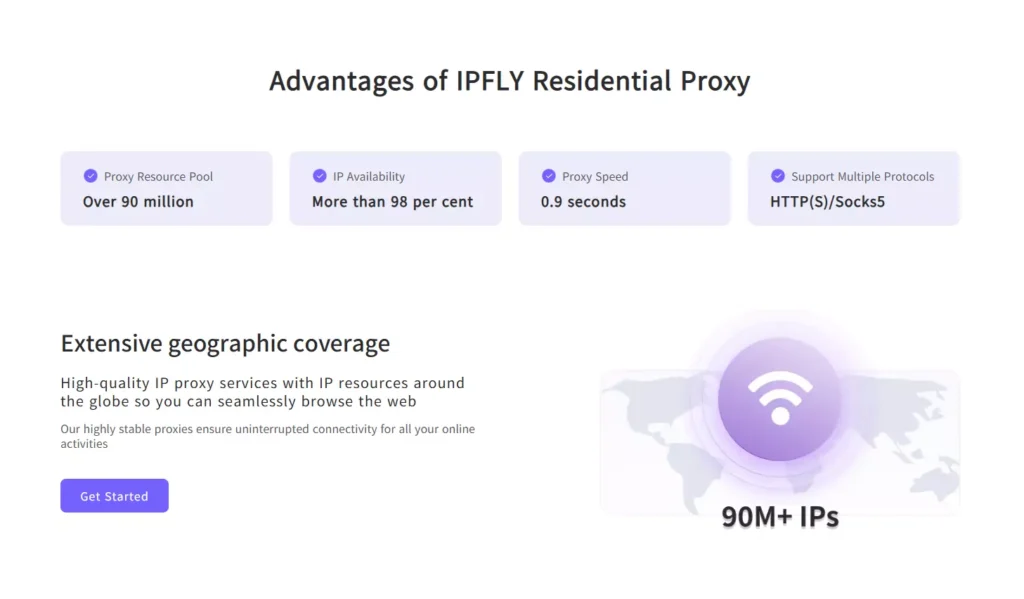In today’s internet-driven world, online privacy and accessibility are more important than ever. Whether you’re collecting data, managing multiple accounts, or accessing geo-restricted content, you’ve likely come across the term “residential proxy.” But what exactly does that mean, and how does it work?
In this guide, we’ll break down everything you need to know about residential proxies—what they are, how they differ from other types of proxies, and when and why you might need one.

Understanding Residential Proxies
A residential proxy is an intermediary server that routes your internet traffic through an IP address assigned to a real, physical device by an Internet Service Provider (ISP). These proxies use legitimate IPs tied to real residential addresses, making your requests appear as though they are coming from everyday users rather than a data center or bot.
This type of proxy provides a higher level of anonymity and legitimacy, which is why it’s often used for tasks that require stealth and trust, such as web scraping, ad verification, and bypassing geo-blocks.
How Does a Residential Proxy Work?
Let’s say you’re trying to access a website that limits the number of visits from a single IP. If you connect using your original IP address, the website might block or throttle your access. But with a residential proxy, your request is rerouted through a residential IP, which appears to the website as a regular user. This allows you to avoid detection and maintain smooth access.
Here’s a simplified step-by-step breakdown:
- You make a request – e.g., visiting a website or collecting data.
- The request is sent to the residential proxy server instead of going directly.
- The proxy assigns a residential IP from a real device somewhere in the world.
- The request is forwarded to the target website from that residential IP.
- The website responds, thinking the request came from a regular user.
- The proxy sends the data back to you securely and anonymously.
Benefits of Using Residential Proxies
1. Better Anonymity
Residential proxies are almost indistinguishable from actual users. This makes them ideal for sensitive tasks where being blocked or flagged could jeopardize operations.
2. Bypass Geo-Restrictions
With access to a wide range of residential IPs in different countries, users can easily view geo-restricted content, test localized websites, or verify ad placements.
3. Reduced Risk of Getting Blocked
Since these proxies are tied to real users, websites are less likely to ban them. This ensures more consistent access and fewer interruptions.
4. Ideal for Web Scraping
When scraping data from websites, using your own IP or a data center IP could trigger blocks. Residential proxies make scraping appear like legitimate browsing, increasing success rates.
5. Access to Limited or Sneaky Platforms
Some platforms, like sneaker or ticketing sites, have strict security filters. Residential proxies help you navigate these filters smoothly.
Use Cases for Residential Proxies
E-commerce and Market Research
Businesses use residential proxies to monitor competitor pricing, check product listings, and track market trends without revealing their identity.
Ad Verification
Advertisers can view how their ads appear in different locations and ensure their campaigns are running as expected.
Social Media Management
Managing multiple accounts across different regions becomes easier and safer with residential proxies.
SEO Monitoring
Track keyword rankings from various geographic regions and simulate local search behavior accurately.
Data Aggregation and Scraping
Gather public data from online directories or marketplaces without being blocked or throttled
Residential vs. Data Center Proxies
| Feature | Residential Proxies | Data Center Proxies |
| IP Source | Real devices via ISP | Cloud/data centers |
| Detection Risk | Low | High |
| Speed | Moderate | High |
| Cost | Higher | Lower |
| Use Case | E-commerce, scraping, ads | General browsing, basic tasks |
Residential proxies are generally more expensive due to their legitimacy and effectiveness, but they’re essential for tasks where stealth and reliability matter.
Static vs. Rotating Residential Proxies
When choosing a residential proxy, you’ll often come across two types:
- Static residential proxies: Assign a single, consistent residential IP address. Ideal for account management or login sessions.
- Rotating residential proxies: Automatically change IP addresses at regular intervals or per request. Great for large-scale scraping or data collection.
Each type has its own advantage, and the choice depends on the task at hand.
Are Residential Proxies Legal?
Yes, using residential proxies is legal in most countries, provided they’re used ethically. Problems only arise when proxies are used for malicious activities such as fraud, unauthorized access, or breaking platform’s terms of service.
Always ensure your proxy provider uses ethically sourced IPs and follows local and international regulations.
Choosing a Residential Proxy Provider

When selecting a provider, look for the following:
- Size of the IP pool: A larger pool (e.g., 90 million+ IPs) means more coverage and less chance of reusing IPs.
- Global coverage: The more countries covered, the better your ability to target different markets.
- Security & privacy: Choose providers with clear privacy policies and robust encryption.
- Success rate: Look for providers that offer high connection success rates, especially for scraping or geo-sensitive tasks.
A Note on IPFLY Residential Proxies
IPFLY offers a large pool of over 90 million ethically-sourced IP addresses across 190+ countries. Its dynamic residential proxies are particularly well-suited for market research, SEO monitoring, and content verification. With self-built server infrastructure and high anonymity protocols, it ensures consistent performance even in demanding environments.
Whether you’re managing accounts or automating data collection, platforms like IPFLY can provide the flexible residential IP solutions you need.
Final Thoughts

So, what is a residential proxy? In essence, it’s your gateway to the internet with a disguise—a disguise that’s hard to detect. Whether you’re a business, marketer, or individual looking for a safe and reliable way to access online content without barriers, residential proxies are a smart investment.
They help maintain privacy, prevent blocks, and navigate the internet more freely and effectively. Just make sure to use them responsibly and choose a trustworthy provider that aligns with your needs.
Want to experience safer, smarter web access? Explore residential proxy solutions from IPFLY to get started with reliable, high-performance IPs today.


